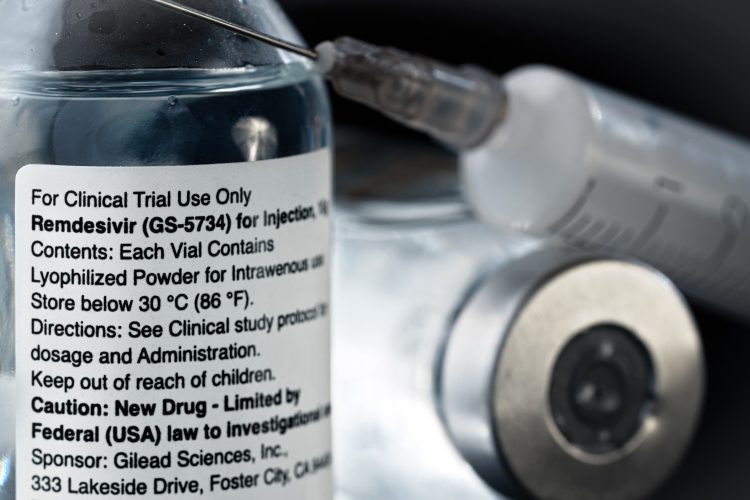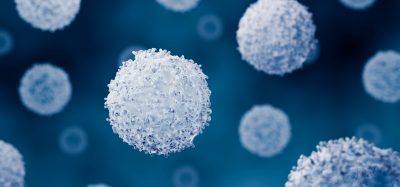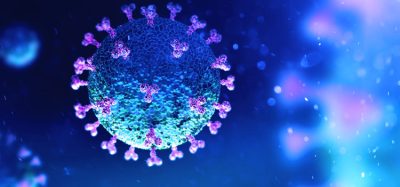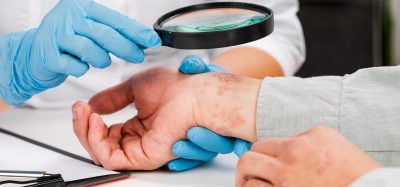Pre-clinical study supports remdesivir as COVID-19 treatment
Posted: 13 July 2020 | Hannah Balfour (Drug Target Review) | No comments yet
Scientists demonstrated that remdesivir can inhibit SARS-CoV-2 replication in human lung cells and improve lung function in mice with COVID-19.


Researchers demonstrated that remdesivir potently inhibits replication of SARS-CoV-2, the virus causing the COVID-19 pandemic, in human lung cell cultures and that the drug improved lung function in mice infected with the virus.
While already in clinical trials establishing its effectiveness against different stages and severities of human COVID-19, remdesivir is still investigational and its activity against SARS-CoV-2 had yet to be established in the lab.
Remdesivir was approved for compassionate use in several countries in late January and has been in clinical studies since February. In April, a preliminary report from the multicenter Adaptive COVID-19 Treatment Trial suggested that patients who received the drug recovered more quickly (reducing recovery time from 15 to 11 days).
In a new study published in Cell Reports, collaborators from Vanderbilt University Medical Center (VUMC), the University of North Carolina at Chapel Hill (UNC-Chapel Hill) and Gilead Sciences, all US, report that remdesivir can potently inhibit the replication of SARS-CoV-2 in human lung cell cultures and improve lung function in SARS-CoV-2 infected mice.
Dr Mark Denison, the E.C. Stahlman Professor of Pediatrics at VUMC, who directs the Division of Pediatric Infectious Diseases, and Dr Ralph Baric, the William R. Kenan, Jr. Distinguished Professor of Epidemiology at UNC-Chapel Hill, and colleagues have been studying remdesivir since 2014.
They revealed they were the first to perform detailed studies to demonstrate that the drug, which was developed by Gilead Sciences to combat hepatitis C and respiratory syncytial virus, and later the Ebola virus, also showed broad and highly potent activity against coronaviruses in laboratory tests.
According to the team, their report provides “the first rigorous demonstration of potent inhibition of SARS-CoV-2 in continuous and primary human lung cultures.” They also said their study is the first to suggest that remdesivir can block the virus in a mouse model.
VUMC’s Dr Andrea Pruijssers, paper corresponding author, research assistant professor of Pediatrics at VUMC and lead antiviral scientist in the laboratory of Denison, said they are now focusing on “how to use remdesivir and other drugs in combinations to increase their effectiveness during COVID-19 and to be able to treat at different times of infection.”
As well as showing efficacy against SARS-CoV-2, the collaborators explain that their research indicates remdesivir is effective against a vast array of coronaviruses, including others found in bats that could emerge in humans in the future.
Denison concluded: “We hope that will never happen, but just as we were working to characterise remdesivir over the past six years to be ready for a virus like SARS-CoV-2, we are working and investing now to prepare for any future coronavirus. We want remdesivir and other drugs to be useful both now and in the future.”
Related topics
Cell Cultures, Cell-based assays, Disease Research, Drug Repurposing, Drug Targets, Immunology, Therapeutics
Related conditions
Coronavirus, Covid-19
Related organisations
Gilead Sciences Inc, University of North Carolina at Chapel Hill (UNC-Chapel Hill), Vanderbilt University Medical Center (VUMC)
Related people
Dr Andrea Pruijssers, Dr Mark Denison, Dr Ralph Baric








